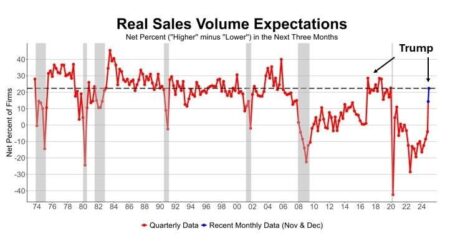You’ve finally secured interest in your intellectual property. Now, a licensing agreement is forthcoming. Now you’re wondering, what should I do next? Is it time to bring in an attorney?
That was the question on my mind while I was negotiating a licensing agreement with a large company that operates internationally this fall. So, I called my friend John Ferrell for his advice. Ferrell is a patent attorney based in Silicon Valley who I’ve been working with for 30 years as well as a popular YouTuber.
Over the past three decades, I’ve negotiated hundreds of licensing agreements. Typically, the process is fairly simple. Negotiating with very large companies to develop complex technologies is different. In this case, I’ve learned it’s best to get help upfront. Persuading a large company to work with you to implement a new technology requires a different licensing strategy overall.
In this article, learn essential tips for negotiating a licensing agreement for your intellectual property. If the process seems intimidating, that’s normal. With experience, negotiating a licensing agreement becomes routine.
What Is A Licensing Agreement?
A licensing agreement is a contract in which a rights owner (in this case, the inventor of a technology) grants permission to someone who is willing to pay for the use of that right (the technology) either exclusively or non-exclusively.
While there are many elements to consider, a licensing agreement typically revolves around five basic terms. These five terms are typically consolidated into what’s known as a “term sheet.” A term sheet isn’t a formal document — in fact it can be as informal as notes scribbled on the back of a napkin. It’s just a preliminary outline of the structure of the deal. If you can’t reach an agreement about these terms, there’s no point in getting further into the details.
Who typically negotiates these terms? The rights owner. Ideally, without a lawyer.
Licensing Agreement Initial Negotiations: Who Should Handle Them?
When I asked Ferrell if I should bring in an attorney to help me negotiate with the large company, he said no, not yet.
“As a business owner, you want to drive the initial discussion. Keeping things friendly is key,” he explained. “Bringing in attorneys too early often leads to a more defensive atmosphere. Lawyers are skilled negotiators, but sometimes their involvement can complicate things, as they may adopt a more postured approach for their client’s sake. This can slow down negotiations.”
Don’t get me wrong, lawyering up is essential. It’s a question of timing.
Handling the basic terms of a licensing agreement yourself before involving legal professionals works best in my experience. That said, before you sign any licensing agreement, be sure to hire an expert to review the fine print.
The Five Basic Terms of Licensing Agreements
Here are the core terms to discuss with your licensee before bringing in lawyers, Ferrell shared with me.
1. What are you licensing? Identify the technology you own that the company wants to license.
2. When does the license start? Determine when you’ll deliver the technology and when the licensee will begin using it.
3. Where will the technology be used? Define the geographic scope of the license. Is it limited to the United States, Mexico, Canada, or other regions?
4. How long will the contract last? Agree on the contract’s duration: One year, six months, 10 years?
5. How much will you get paid? Establish the value of the license. What royalty rate will apply?
Getting Paid For Your Intellectual Property
Often, inventors want to jump straight to discussing price. However, Ferrell emphasizes that the payment term — the fifth term — should only be discussed after you’ve finalized the first four terms. The royalty rate is influenced by these terms, so knowing the details of the agreement before helps inform what a fair royalty rate is. Instead of starting with a specific figure in your mind, focus on understanding what the licensee needs to be successful. Once you have that clarity, you can approach the payment from an informed perspective.
If you’re asked about your “preferred” royalty rate, a safe response is to say, “I propose a rate that’s fair for both parties.” Let me explain.
Sometimes, at the very beginning of your conversations, the licensee will ask, “What type of royalty rate are you looking for?” This is a quick way for them to test how reasonable you are. If you throw out a ridiculously high number, they know your expectations aren’t practical. At this time, you don’t have all of the information you need to come up with a reasonable figure.
So, avoid throwing out a random number. Instead say, “It’s difficult to come up with a number without seeing the entire licensing agreement. I’m looking for a fair royalty rate — one that works for both parties.”
This approach works most of the time.
Exclusive vs. Non-Exclusive Licensing Agreements
A crucial term of a licensing agreement for you to consider is exclusivity. When you grant an exclusive license, you relinquish the right to license the technology to other companies. Typically, this results in a higher royalty rate. This can have a significant impact on revenue, so it’s worth discussing carefully.
So, when we begin discussing the terms of the agreement, I ask right away: Would you like an exclusive? Nine out of 10 times they say yes. Their desire for exclusivity gives me a little leverage to negotiate for a higher royalty rate.
Keep It Amicable
Discussing the term sheet of a licensing agreement should feel like a friendly conversation. As Ferrell suggests, this is why it’s often best to keep attorneys out of the early stages of the negotiation process. To help you maintain momentum, wait to discuss more complex terms (such as minimum guarantees, which relate to performance) until later on. Navigating these terms requires a delicate touch. The better time to bring these up are after you’ve established rapport and are further along in negotiating the agreement.
Read the full article here











